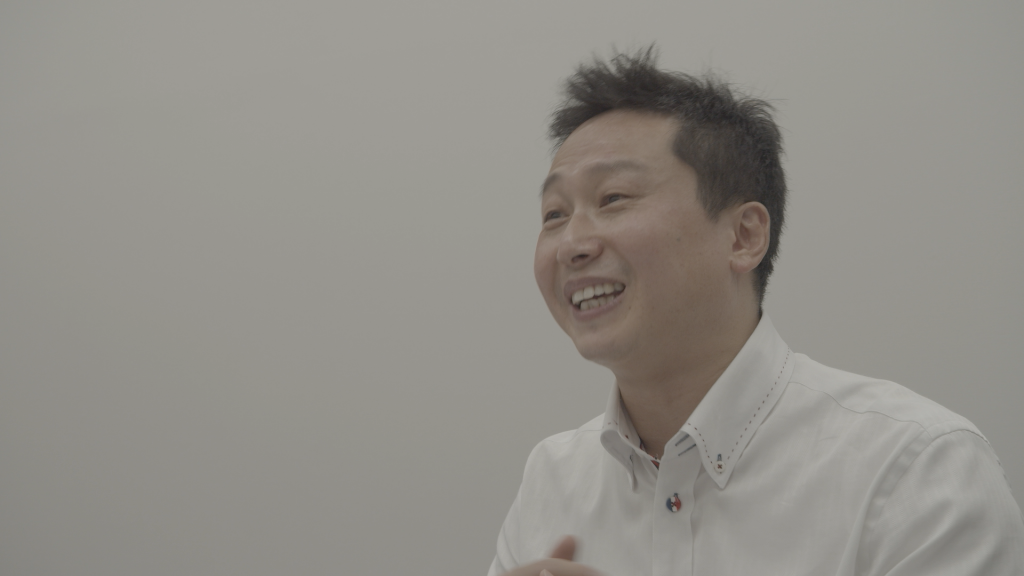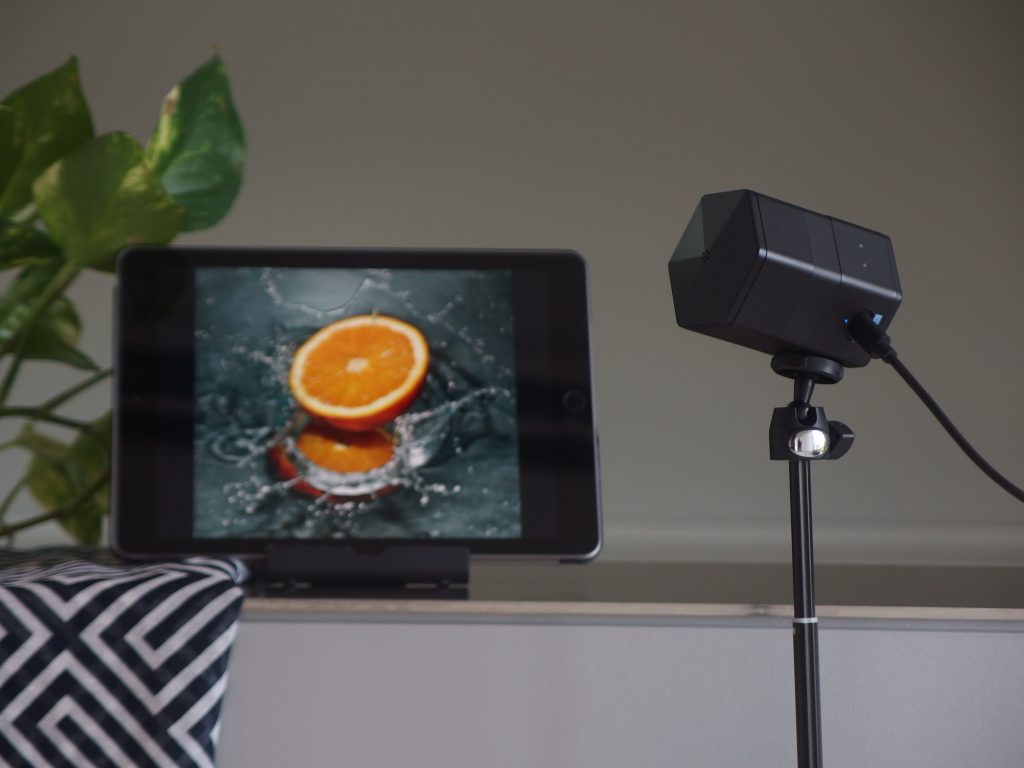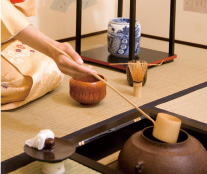We had an interview with Mr. Dong Wook Kim from Aromajoin on his business and ecosystem in Kyoto for non-Japanese. He was a researcher at the National Institute of Information and Communications Technology (NICT) before starting his business in 2012. Aromajoin has received numerous awards, and was designated as one of “J-Startup KANSAI” startups. Why did he start his business in Kyoto and how was it going with in Kyoto?


Q: What is your business?
Aromajoin produces the Aroma Shooter®, a device that dispenses fragrances in conjunction with video and audio. Unlike conventional diffusers that use liquid fragrances, the Aroma Shooter uses solid, printer-like cartridges. Via this mechanism, the Aroma Shooter solves a problem that all diffusers faced until now: once fragrances are diffused, the smells linger and muddy together. In the case of the Aroma Shooter, it is possible to toggle discrete scents in a fraction of a second, with no scent remaining in the air. It also dispenses smell in a targeted way, while pointed directly at someone’s nose. Smells don’t fill up a space uncontrollably. Currently, our main customers are large companies and research institutes, but we are also selling our products to consumers. Additionally, we are developing software and media content that work with our scent control devices to create a scent media ecosystem.

Q: Why did you start your business?
When I was in elementary school, my mother saw a color TV for the first time, and she said to me, “Maybe a time to watch TV with aroma will also come”: an idea which has stayed with me ever since. I studied scented TV (Smell-O-Vision) when I was in graduate school, and I’ve been thinking specifically about starting my own business ever since. I felt I could not make an impact and spark change in the world unless I put my knowledge to practical use and spread adoption of the technology by myself.
Q: What was the most difficult part of starting a business as a non-Japanese?
It was tough for me to start a new business in a foreign country. The hardest part was getting a business visa(*). Getting that visa was as hard as fundraising, sales, and recruiting. I hear the process has improved a lot now, but it was a frustrating situation at the time, especially since you couldn’t even get to the starting line without a guarantor. In a way, it was a test of my moral character, and it was a psychological and emotional challenge.
(*) Mr. Kim launched his business in 2012, before introduction of startup visa in Japan.
Q: Were there any other difficulties you faced?
Building trust with financial institutions and getting acquainted with experts was also a challenge. Especially since Aromajoin had to apply for lots of patents, I definitely needed support from a patent attorney. In the beginning, I did not know any specialists in that field. We struggled until we met our current lawyer. I believe that you are more likely to meet a good specialist if you go through referrals, and I realized that personal relationships is essential, as is the case with finding a guarantor.
Q: What are the advantages of starting a business in Kyoto?
Kyoto is famous for being a tourist destination and a place that attracts diverse talent from abroad. We get resumes from all over the world from “Highly-Skilled Foreign Professionals” through JETRO, and I think Kyoto is a magnet for people.
Also, Kyoto is the mecca of manufacturing, and the fact that it has a system for mass production is also very attractive. Kyoto has a concentration of the manufacturing industry, such as electronic circuit boards and processing equipment, as well as molds, which is very important for hardware startups, making Kyoto a place with all the necessary conditions for product development. There is a high concentration of publicly-traded and global companies, and it is easy to collaborate with other companies in the city, making it a good place for business.
There are also various governmental support systems including KYOTO Industrial Support Organization 21 and incubation facilities to nurture startups, making Kyoto a place full of business advantages.
Q: What are your thoughts behind the idea of “changing the world through fragrance communication”?
Aroma has a special power, and we want to let people share feelings through aroma and send messages with aroma. Fragrances are linked to memory, to spatial and location awareness, and the stimulation of the sense of smell is ideal for stimulating the brain and appealing to emotions. And if you have tools to communicate scents through social media, you can share your feelings and current status more vividly.
I hope to make this kind of communication with scent a part of our daily life. This is not something we can achieve alone. We would like to create a communication platform for aroma content and expand the market with other players.
Q: Could you tell us your future perspectives?
Now, due to the impact of COVID-19, introduction of our technology in experiential settings has been suspended. So, we are searching for new markets. Now specifically, we are searching for markets in conjunction with workplace reform. We are proposing ways for companies to enhance the quality of remote work with scent communication. For consumers, we would like to integrate “scent communication” into existing chat systems and social media services.
Q: Message for non-Japanese who want to start a business in Kyoto, please!
Kyoto is the birthplace of Japan’s Renaissance. Come here to engage in your own Renaissance!
Since it is the world’s first technology of its kind, there are still a lot of issues to be addressed before the olfactory display can be widely used and the market expanded. However, if “scent communication” takes root as a culture in society, it is expected to drastically change the way all kinds of information is transmitted, including entertainment and news reporting.
JETRO Kyoto provides overseas entrepreneurs with support for various application procedures and referrals to financial institutions and specialists, which Mr. Kim found difficulty in starting his business. Please feel free to contact us if you have any inquiries regarding startup visa program.
▼What is Startup Visa?
A visa system (commonly known as a “Startup Visa”) that Kyoto Prefecture began operating in 2020 to support overseas entrepreneurs starting their business in Kyoto. JETRO Kyoto serves as a contact point for consultation from non-Japanese in Japan and abroad, providing support for startups and connecting them with relevant organizations. It also conducts PR activities to promote Kyoto’s startup ecosystem globally.



